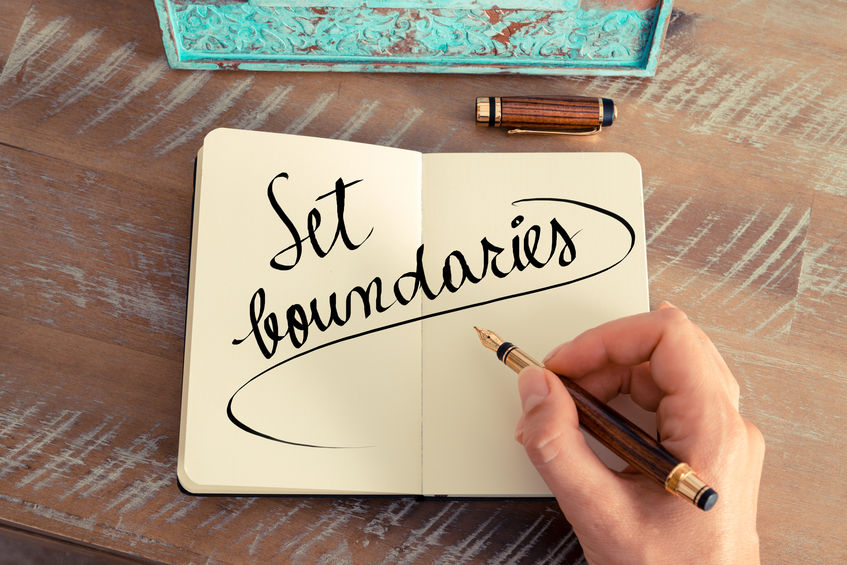Boundaries in relationships consist of different things. Boundaries can be the rules around how often you communicate with someone, or they can determine how you respond to someone. Boundaries vary in different kinds of relationships. For example, the boundaries between you and your mom will probably be different from those with a co-worker.
I like to think of boundaries as teaching someone how to be in a relationship with you. Sometimes, you may need to teach someone a different way of relating to you, but it can be hard to tell when or know how.
Here are some common issues clients have brought up to me which signaled they needed to adjust their boundaries:
1. Feeling overwhelmed from doing so many things for other people. It’s normal to feel good about helping other people, and in different roles of life, such as parenting, it’s required to help other people. However, sometimes we have boundaries which teach others that they can drop things on us, regardless of our own needs and time. Without healthy boundaries, it can be difficult to draw the line on when you want to or should help someone versus when they need to do something on their own.
2. Feeling guilty or being unable put distance in relationships which are “too much.” Sometimes as part of life we need to move on or distance ourselves in relationships, but that can be hard. Maybe a relationship just ended and though you don’t want to talk to that person, you find yourself communicating with them a lot, by text or phone call. Maybe your family members, whom you care about, call a little bit too often, and without recognizing it in the moment, you find yourself having conversations which last a lot longer than you wanted. Maybe you’re in a relationship which has become traumatic and abusive, and it seems really scary to leave. Healthy boundaries give us the space to decide what we are okay with and what we aren’t. Healthy boundaries also help guide us into doing something once we recognize what we’re okay with and what we aren’t.
3. Feeling too vulnerable and over-sharing or under-sharing about yourself. As I mentioned earlier, sometimes boundaries are the “rules” of the relationship, which includes what you talk about with others. If you find yourself telling personal things to people you aren’t very close with or who don’t seem to care, you may need to adjust your boundaries. On the other hand, you may find yourself feeling afraid to tell the people close to you how you’re doing, and it’s created strain in the relationship. Healthy boundaries help us decide who we can talk to and what we need from them in order to do so.
4. Caring more about a relationship than the other person. Sometimes a person is important to you, and while they say they feel the same, their actions don’t equal their words. You may find yourself feeling like you’re exhausted after running after them so much, but they keep shutting you down. Healthy boundaries let us know when something is about us, versus when it is about another person.
While there are other examples, I find these four signs are good to start with because they center around three emotions which directly relate to boundaries: fear, guilt, and anxiety. If you experience any of those three with other people, chances are good you may need to take a look at your boundaries.
Some ways you can do this is to ask yourself if any of the scenarios above apply to you. You can also think about the following:
Is it difficult for me to say “no?” When was the last time I did?
Do I say “yes” to things I don’t actually want to do?
Am I comfortable feeling worthy of basic dignity from others? Do I have to prove myself or earn value?
If you’re struggling with the things mentioned in this list there are a few things you can start doing. Say “no” to someone once a week and see how it goes. It may be less scary than you thought, or a person’s reactions may tell you what they really think about you. Also, state your needs. Literally tell someone, “I need _____ from you,” in a soft, yet direct tone. By saying this in this way, you’re stating your own importance without steamrolling the other person.
Lastly, meet with a therapist. They have the tools to help you change your boundaries and explore some of the root causes as to why you taught people to have ineffective boundaries with you in the first place. If you’re looking for someone to talk more about this, start changing your relationships, and to understand yourself better, a therapist can help.
Contact info:
John Christian Schloegel, MS, ALMFT
johnchristian@relationshipreality312.com
312-768-8630

